
OUR GIRLS WHO CODE

Lucy
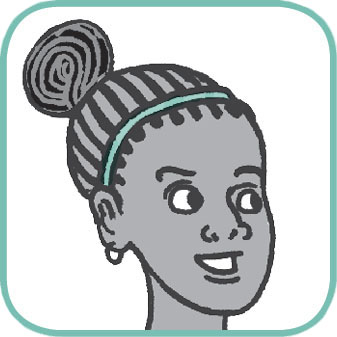
BIRTHDAY: May 20th
LIKES: science, music, video games, emojis, trying new things
Sophia

BIRTHDAY: November 13th
LIKES: sports, sweatpants, babysitting, nail art, taking selfies
Maya

BIRTHDAY: June 3rd
LIKES: writing, drawing, fashion, chunky jewelry, giving advice
Erin

BIRTHDAY: February 26th
LIKES: baking, theater, reading, surfing, doing silly impressions
Leila

BIRTHDAY: August 22nd
LIKES: robotics, gardening, field hockey, crafting, hanging out with her big sister
HELLO, WORLD
IM RESHMA, and Im the founder of Girls Who Code.
Our organization helps girls in middle school and beyond learn to write code thats used to program computers and digital devices and get inspired by all the amazing ideas, skills, and opportunities that learning to code can bring.
And, believe me, there are tons.
But Ill let you in on a little secret: UNTIL A FEW YEARS AGO, I WAS AFRAID TO LEARN HOW TO CODE.
My background is as a lawyer and politician. Ive served as the deputy public advocate for New York City, and in 2010, I was the first South Asian American woman to run for Congress. Ive always loved meeting new people and helping out in my community. Thats why I was drawn to politics. Ever since I was a girl, Ive aspired to do something that would make a positive difference in peoples lives. I just never imagined it would be through computers or coding.
But when I was running for office, I spent a lot of time visiting New York City schools. Thats when I noticed something.
In every computer lab, I saw dozens of boys learning to code and training to be tech innovators. BUT THERE WERE BARELY ANY GIRLS!
Where were they?
This didnt seem right to me. I knew that women make up a majority of college graduates and almost half our workforce. But when it came to computer science, or CS, the study of computers and the different ways they can be used, women werent anywhere to be seen (at least in New York Citys schools). And thats a problem.
By 2020, there will be 1.4 million open jobs in computing. These jobs are some of the countrys highest-paying and fastest-growing career paths. BUT GIRLS ARE ON TRACK TO FILL JUST 4 PERCENT OF THEM.
Just 4 percent? If this were a pie chart, that wouldnt even qualify as a slice!
To me, this is unacceptable. Girls are missing out on the jobs of the future, all because they are not learning to code.
Why is this happening? Why werent there more girls in those classrooms?
THE PROBLEM
It got me thinking about why Id never learned to code.
It wasnt because I didnt have plenty of opportunities to study math and computing; after all, my dad is an engineer. When I was growing up, he loved to share science ideas with me and would always ask me math questions on the fly, usually during dinner. But it was hard for me to work out the answers in my head. A lot of times I knew the answer, but I couldnt figure it out right away. And those moments of not knowing and staring at my dads face across the table made me feel like I wasnt smart enough. Dinner became an anxiety-filled event for me, and I started to believe I wasnt good at math.
Then I became scared of it.
So I avoided it, and any subject I thought required mathincluding coding, statistics, and engineeringand focused on history and writing, where I was more comfortable and knew I would do well immediately.
I didnt realize it at the time, but I wasnt alone. Thousands of girls of all ages tell me the same thing: that theyre just not good at math or science. They tell me theyre scared of subjects that seem too technical, like coding. Or even if theyre not scared, they think computer science is not for themthat its not social enough, and its for boys who like to sit at computers all day.
Well, let me tell you another secret:
THAT IS COMPLETE AND UTTER BALONEY ON A ROLL! (hold the mayo)
It turns out that from an early age, weve been fed the message through stereotypes, social cues, and sometimes even from educators that science, technology, engineering, and math, or STEM, is not for you.
If you start looking for these signals, youll see them everywhere. I can walk into a popular retailer for teen girls and buy a T-shirt that says ALLERGIC TO ALGEBRA . Or I can watch any number of TV shows depicting a programmer as a guy in a hoodie alone with his computer in his basement.
As girls, were listening. And you can see the impact of these negative stereotypes and lack of role models in the numbers. By middle school, most girls say that STEM careers are not for them. By high school, girls are ranking engineering, computing, and math as some of the least interesting professions.
Girls are being slowly steered away from STEM subjects before they can find out if they actually like them, and, more importantly, before they can find out that they are actually

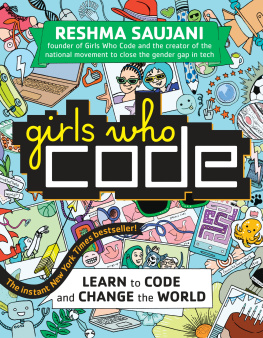
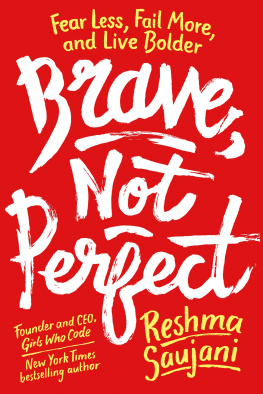


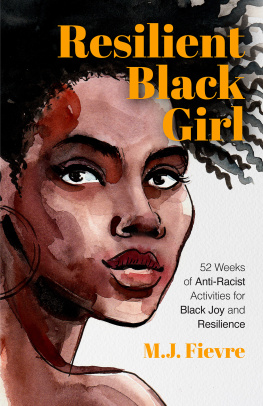
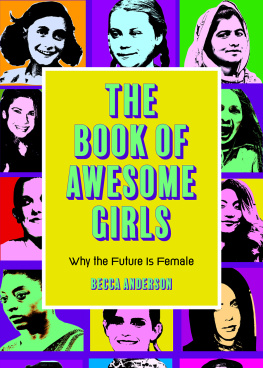
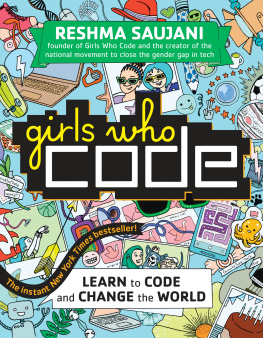







 OUR GIRLS WHO CODE
OUR GIRLS WHO CODE 





